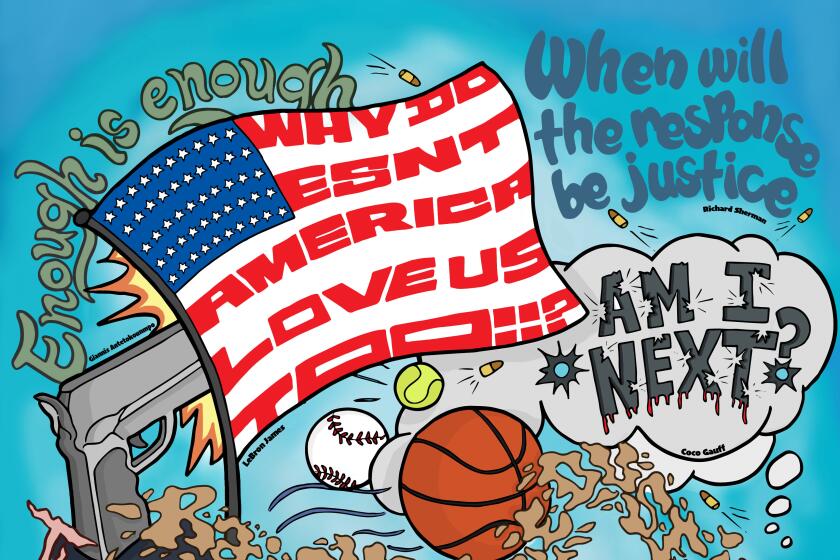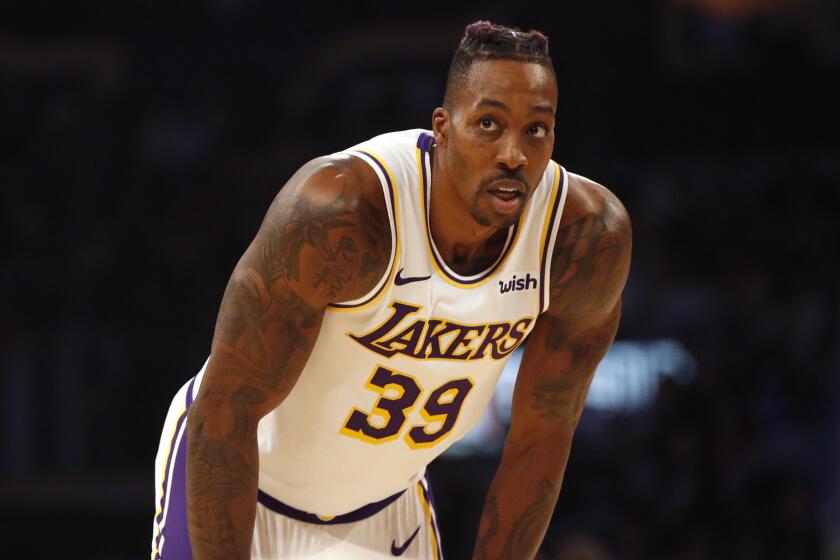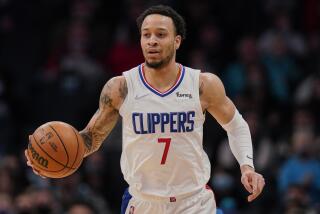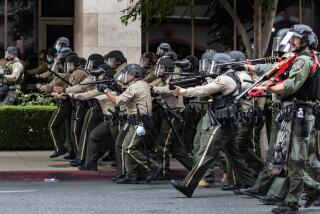George Floyd’s death was intensely personal for Clippers rookie Amir Coffey
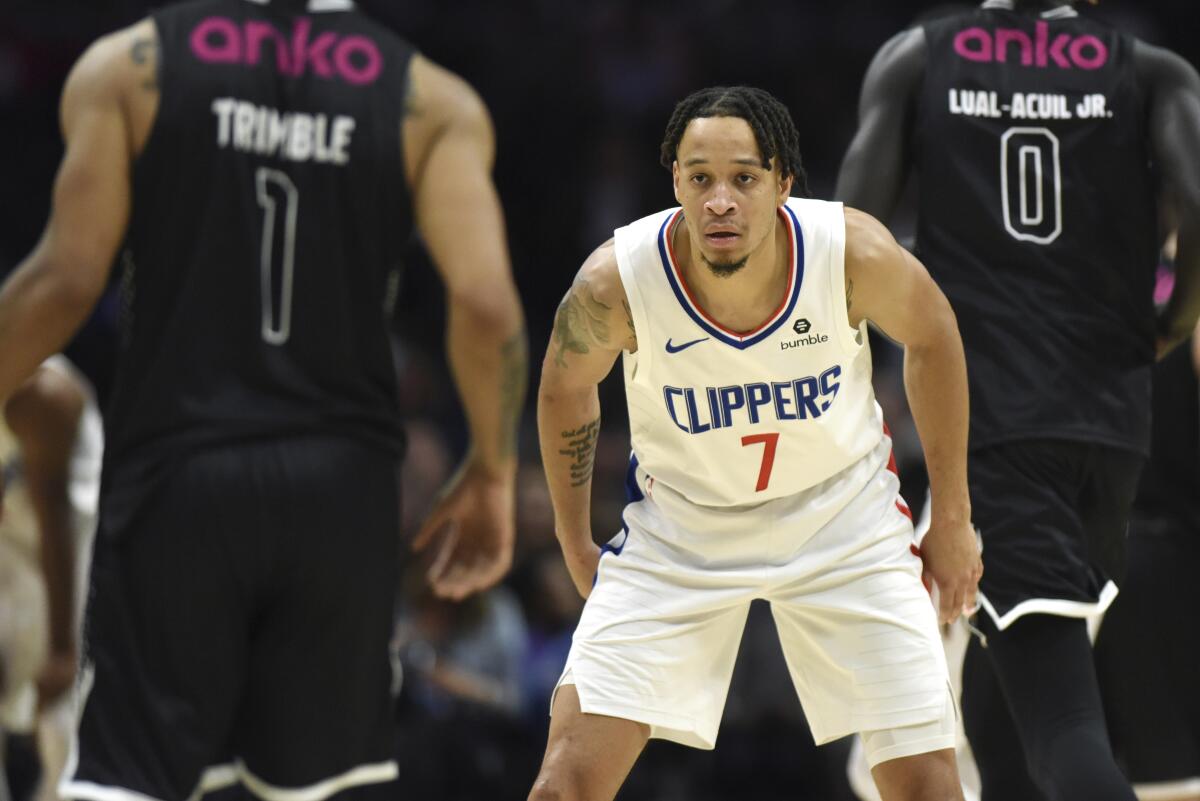
- Share via
Last month, Amir Coffey wanted to understand what happened to George Floyd.
The Clippers rookie clicked on the video circulating on social media, showing four police officers surrounding Floyd, a Black man, as he lay restrained on the Minneapolis pavement. Coffey soon turned it off. He could not stand to see Floyd plead that he could not breathe. Nor watch as Floyd lay motionless nearly nine minutes after a white officer, Derek Chauvin, knelt on his neck.
The footage was excruciating. So, too, was the feeling that came from understanding where it was recorded.
“It was so close to home,” Coffey said.
Like millions of others, Coffey has watched — from Los Angeles, where he has continued training amid the paused NBA season — as worldwide protests against police brutality, coupled with a nationwide introspection into racial inequity, have rippled out from the intersection where Floyd died May 25 in south Minneapolis’ Powderhorn section, with no end yet in sight.
In the wake of the George Floyd killing, athletes and leagues have led with bold words and actions, but will the power of their protest carry over to the games?
“It’s just like people are at a breaking point right now,” Coffey said. “They have to speak out and stand up for their human rights.”
For Coffey, who was born and raised just outside of Minneapolis, the movement’s roots have been felt on a personal level.
The intersection where Floyd died is eight miles east of Hopkins, the suburb where Coffey was the youngest in a family whose three children all went on to play Division I basketball. It is three miles south of Target Center, the arena where Coffey’s 60-foot shot at the end of the fourth overtime sent Hopkins High to the state championship in 2014, and where he returned, two years later, to claim a championship and the title of the state’s Mr. Basketball. It is four miles south of the University of Minnesota, where Coffey arrived in 2016 as one of the nation’s top recruits and began a career that included all-Big Ten honors. Those moments are some of why Coffey calls himself a proud Minnesotan.
“It feels like it’s an everlasting cycle. It happens and it gets swept under the rug and no consequences come and it repeats itself.”
— Amir Coffey, Clippers guard
But the intersection is also a short drive from the suburban street at the heart of why Coffey says he stands in solidarity with the protest movement.
The scene is still vivid in his memory: He was in high school, driving home with a friend after stopping for McDonald’s takeout, when he was pulled over. Seeing a white officer approach his window, he went through the mental checklist he’d been taught by his parents while growing up in a state whose percentage of Black residents is half the nationwide average.
Speak to law enforcement in a neutral tone. Make no sudden movements. Keep your hands visible.
“He came up to the car and got the license and registration,” Coffey said. “First thing he said was, ‘Where’s the marijuana?’ Me and my friend were like, ‘What do you mean?’ He’s like, ‘I know you guys have it, I can smell it coming out of the car.’”
The officer called for backup and three cars soon arrived, Coffey said. He and his friend were asked to leave the car as officers began a search. Coffey struggled to understand why the situation escalated so quickly.
“In reality, they were smelling the food or the McChickens,” he said. “It was just too much. It didn’t make any sense. It’s a crazy situation to know you did nothing wrong and you’re still getting treated like that.”
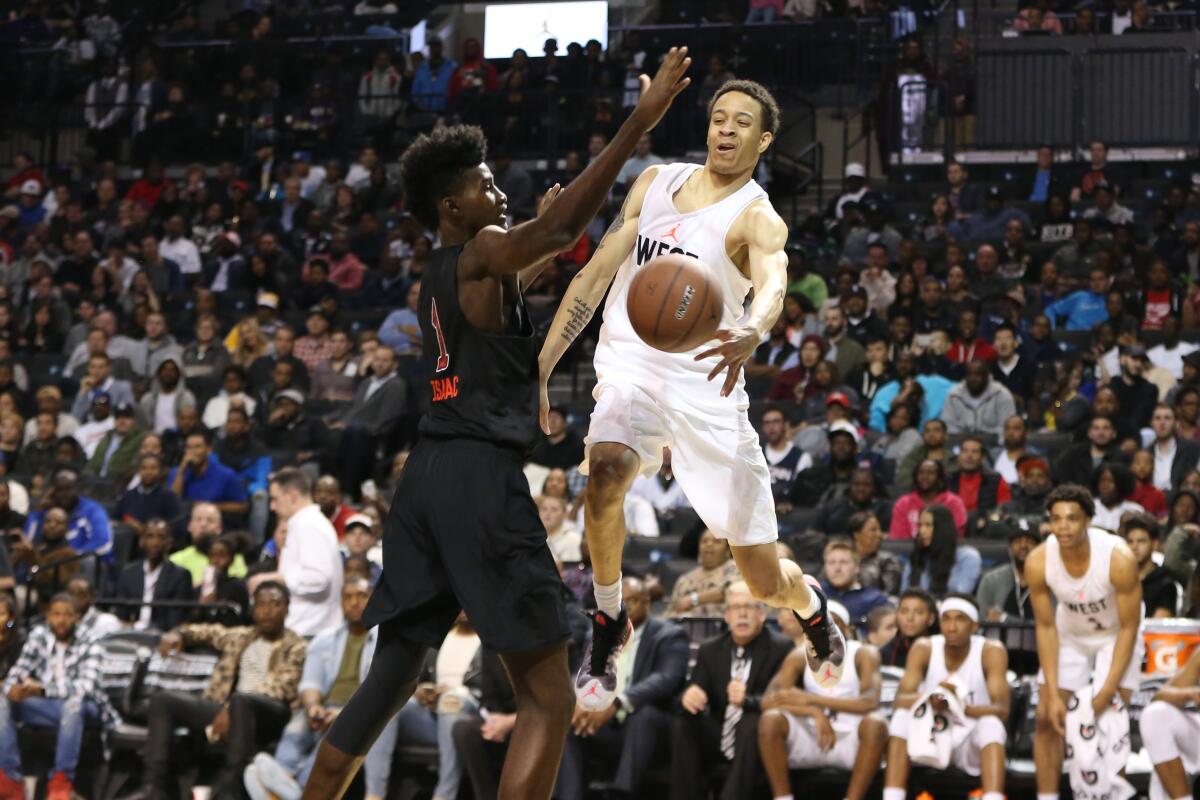
Coffey, 22, encountered racism before. But being pulled over marked the first time that Coffey understood firsthand how an otherwise routine interaction with law enforcement could spiral into something more tense and out of his control.
“There’s always a feeling like, that won’t happen to me,” he said. “Next thing you know you’re actually in that situation. It can happen to anybody.”
That feeling has been reinforced in recent weeks, as Coffey learned how Breonna Taylor, a Black woman, was fatally shot March 13 while sleeping after officers burst into her Louisville home; how Ahmaud Arbery, a Black man, was killed Feb. 23 in Georgia after being confronted by two armed men while jogging; and that the officers in Minneapolis were responding to reports of a man using a counterfeit bill before their encounter with Floyd turned fatal.
“It feels like it’s an everlasting cycle,” Coffey said. “It happens and it gets swept under the rug and no consequences come and it repeats itself. Now that this is happening, people are coming together and fighting for this stuff. It’s important.
“At this point people believe that the route we’re taking is right and I’m going to stand with my people.”
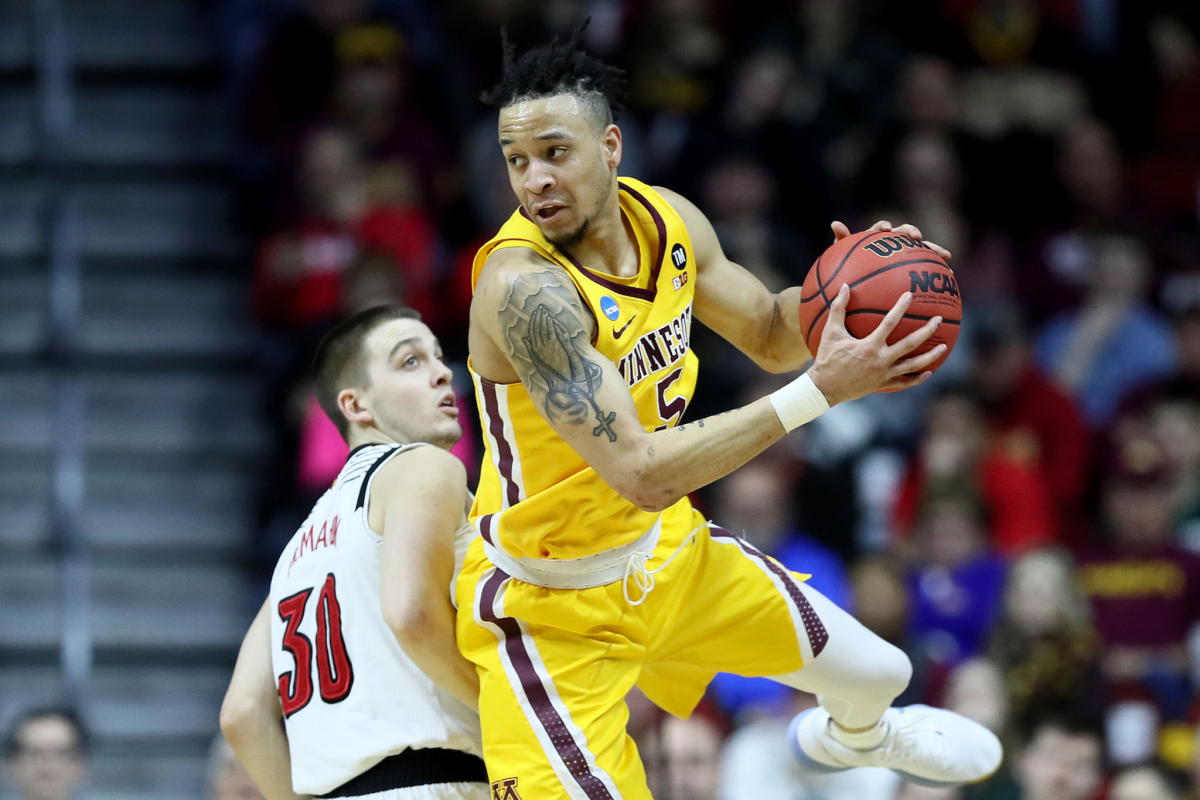
Coffey felt a similar outrage rise out of Minneapolis in 2016 after another Black man, Philando Castile, was killed during a traffic stop. This time, he hopes, it will lead to systemic changes to tear down racial inequity and recognizes he has his own part to play. Coffey wants to contribute to Minnesota-based organizations and use his visibility as a homegrown professional athlete to keep momentum going.
“I want to be involved because I can’t be there physically,” he said.
In recent weeks, Clippers owner Steve Ballmer has held town-hall sessions with employees to hear concerns and create plans for action. With the Clippers’ backing, players have been encouraged to identify causes to support both in L.A. and their hometowns, Coffey said.
“I commend [Ballmer] for that,” he said.
Lakers center Dwight Howard is concerned the NBA’s return could cause a distraction amid the nationwide protests against police brutality and racism.
In recent days, NBA players have expressed concerns that restarting the season in late July at Florida’s Walt Disney World Resort would distract from the protests. Others believe the national spotlight that will come from being one of the first professional leagues to resume play amid the coronavirus outbreak would amplify their platform.
“I’ve heard both sides of it so far,” Coffey said. “Honestly, whatever happens, if we play the season out or we don’t, it’s not going to change how involved the athletes or other people are in help making the change and being part of this.”
Since Floyd’s death, as clashes between law enforcement and protesters often turned violent, Coffey has found it difficult to open Twitter, wary of the caught-on-video brutality that could pop into his timeline. It’s why part of his new, daily routine has included checking on the safety of his older sisters, Sydney and Nia, his agent, Javon Phillips, and his friends in Minnesota.
Where the calls for reform go from here, Coffey does not know. But he is proud of where they began.
“To see that it’s starting back home, where I’m from, and to have this shock wave over the nation?” he said. “It’s wild.”
More to Read
Go beyond the scoreboard
Get the latest on L.A.'s teams in the daily Sports Report newsletter.
You may occasionally receive promotional content from the Los Angeles Times.

